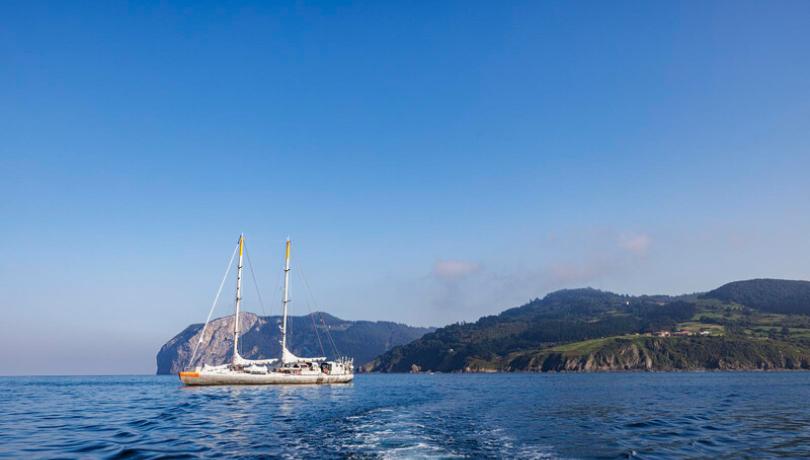Over two years, TREC, which has the participation of the ICM, will sample 120 locations in 21 European countries, including around Barcelona during this March.

After eight months of sampling the European coastline along the Atlantic, Baltic, and North Sea throughout 2023, the ‘Traversing European Coastlines’ (TREC) expedition will explore the Mediterranean coastline in 2024.
TREC is the first continent-wide project to study coastal ecosystems and their response to the environment. Our seas and coasts host an extremely rich diversity of life and play critical roles in the stability and sustainability of wider ecosystems. However, anthropogenic interferences are leading to accelerated loss of species’ genetic diversity and destruction of functional ecosystems. The TREC expedition will provide a richer and deeper understanding of how ecosystems respond to natural and human-made challenges by sampling along the European coast.
"The collection and analysis of data along the European coasts will increase our knowledge of biodiversity and adaptations of organisms to environmental challenges," says Ramiro Logares, one of the ICM-CSIC researchers involved in the project.
The TREC expedition is led by the European Molecular Biology Laboratory (EMBL), together with the Tara Ocean Foundation, the Tara OceanS consortium, and the European Marine Biology Resource Centre (EMBRC). It brings together more than 150 research teams from over 70 institutions in 21 European countries. At each stop, they work together with local partners, such as the Institute of Marine Sciences (ICM-CSIC), with a leading role in the coordination of the expedition in Barcelona, and the collaboration of the Institute of Evolutionary Biology (IBE:CSIC-UPF), the Institute of Environmental Assessment and Water Research (IDAEA-CSIC) and the Blanes Center for Advanced Studies (CEAB-CSIC).
The expedition combines scientific activities on land and at sea at an unprecedented scale. In Barcelona, scientists travelling with EMBL’s mobile laboratories and onboard the Tara schooner will collect water, soil, sediment, and aerosol samples in Barcelona’s surrounding areas.
As part of EMBL’s mobile laboratory, the Advanced Mobile Laboratory brings to selected sites, including Barcelona, cutting-edge technology directly to the field helping researchers process biological samples immediately after collecting them, using a variety of advanced methodologies.
Thanks to TREC infrastructure, ICM experts will research microbial communities to understand their role in marine ecosystems and track the impact of pollution and global warming.
A range of different activities for the media, schools, and the general public are offered during the expedition´s stay.
The scientific expedition
The project aims to study the biodiversity and ecosystems on land and at sea, as well as the interactions of organisms with each other and with the environment. The scientific teams collect information on factors such as the presence of pollutants, antibiotics, pesticides, or hormones, as well as temperature, salinity, and oxygen levels. At each point where the EMBL team and collaborators sample soil, sediments, and shallow water, the schooner Tara samples the associated marine ecosystems – on the same day and in the immediate vicinity.
Biological samples are fragile: as soon as a drop of water or crumb of soil is removed from its natural environment, the organisms within them begin to change. To maximise the integrity of organisms and to study them in the context of their natural environment, TREC is bringing the lab to the samples, instead of samples to the lab. In total, TREC will examine the biodiversity and molecular adaptability of life at the molecular scale at 120 coastal sampling sites across 21 European countries.
The pan-European nature of this project means that samples will be taken in a standardised fashion. This will make it possible to compare and probe data across Europe instead of a regional or national system in a way that was not previously possible.
EMBL acknowledges the generous support of many institutions, donors and sponsors, in particular the Manfred Lautenschläger-Foundation, Eppendorf SE, Carl Zeiss Microscopy, and Friends of EMBL in helping make TREC possible.